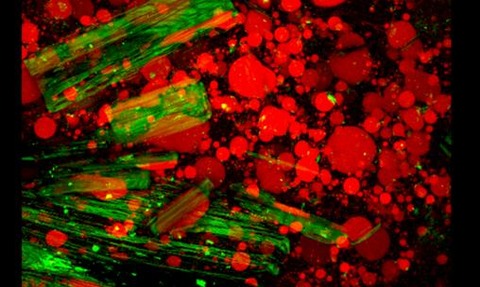
’Focus on Food’ meeting to be hosted by Royal Microscopical Society at Reading University.
On May 21, delegates from the food industry will be given technical presentations about how microscopy can be used in developing innovative food products.
As the event sponsor, analysis, research and training provider, Reading Scientific Services Ltd (RSSL), will present its own perspective of undertaking research and development projects for clients in the food industry.
RSSL recently opened a refurbished microscopy laboratory at its Reading base, and has worked with many food industry customers to understand how microstructure affects the performance and properties of food products.
Many product characteristics such as texture, mouthfeel, crunchiness, smoothness, and even flavour can be altered and explained by microstructure. By employing a wide range of techniques to look at the fine detail inside and on the surface of products,
RSSL helps food manufacturers during the product development stage, and in troubleshooting problems with existing products.
When a process is changed, or production moves to another line or factory, microstructural studies can also help explain why the new process/line isn’t producing a product with the desired characteristics, and crucially, can point to what needs changing to get the production back on track.
Helping improve the shelf-life or storage properties of food products is another area of research that RSSL is involved in.
It has a wide range of storage cabinets available, and a unique X-ray tomography instrument (a bit like the CT scanner used in medical imaging) that can look inside a product without causing any damage.
The non-destructive technique is perfect for looking at how a product’s internal structure changes over time, and it is even possible to examine the food product inside its packaging.
“Microscopy is still under-utilised by the food industry,” notes Tom Ray, manager of RSSL’s Microscopy Laboratory.
“Many customers appreciate its value in investigating foreign bodies, but don’t appreciate how valuable the same techniques can be in understanding how microstructure can be manipulated to develop innovative food products. We hope the RMS meeting will shed some light on these issues and benefit food production and food innovation in the UK.”
Anyone wishing to attend the presentation can do so by registering in advance at: http://www.rms.org.uk/events/Forthcoming_Events/focusfood.




